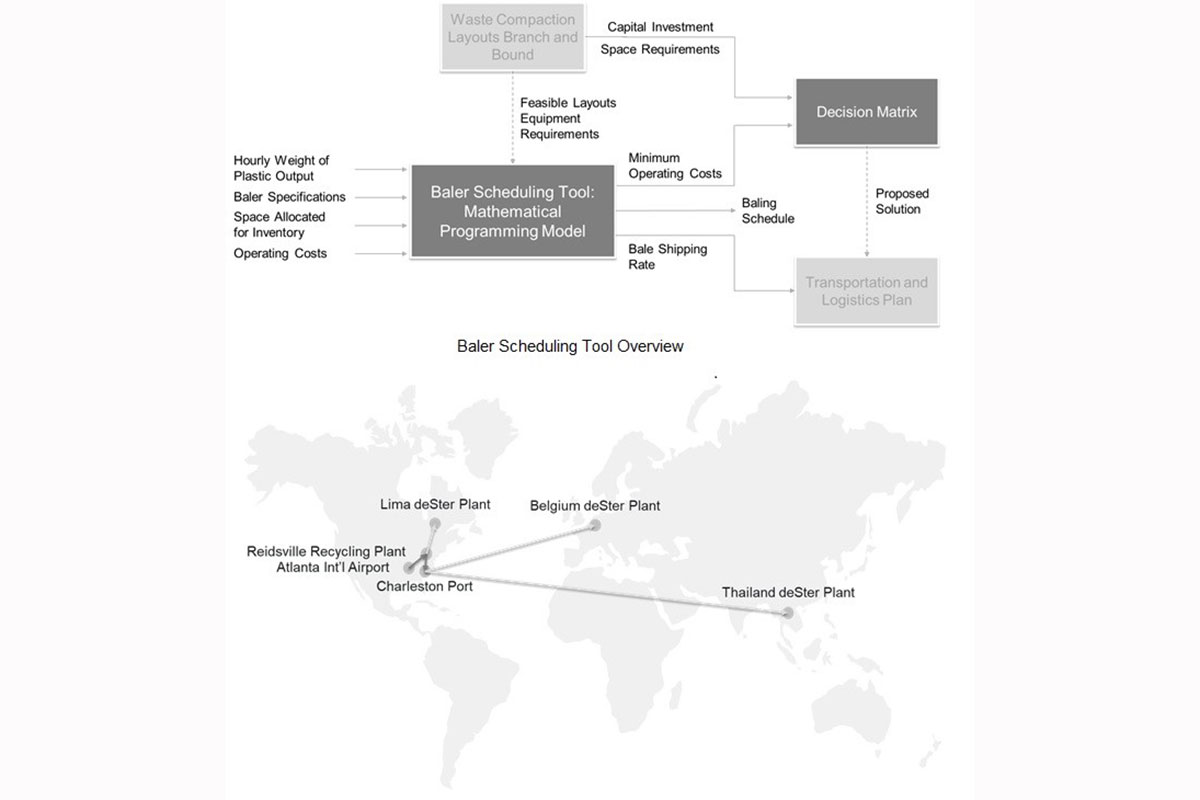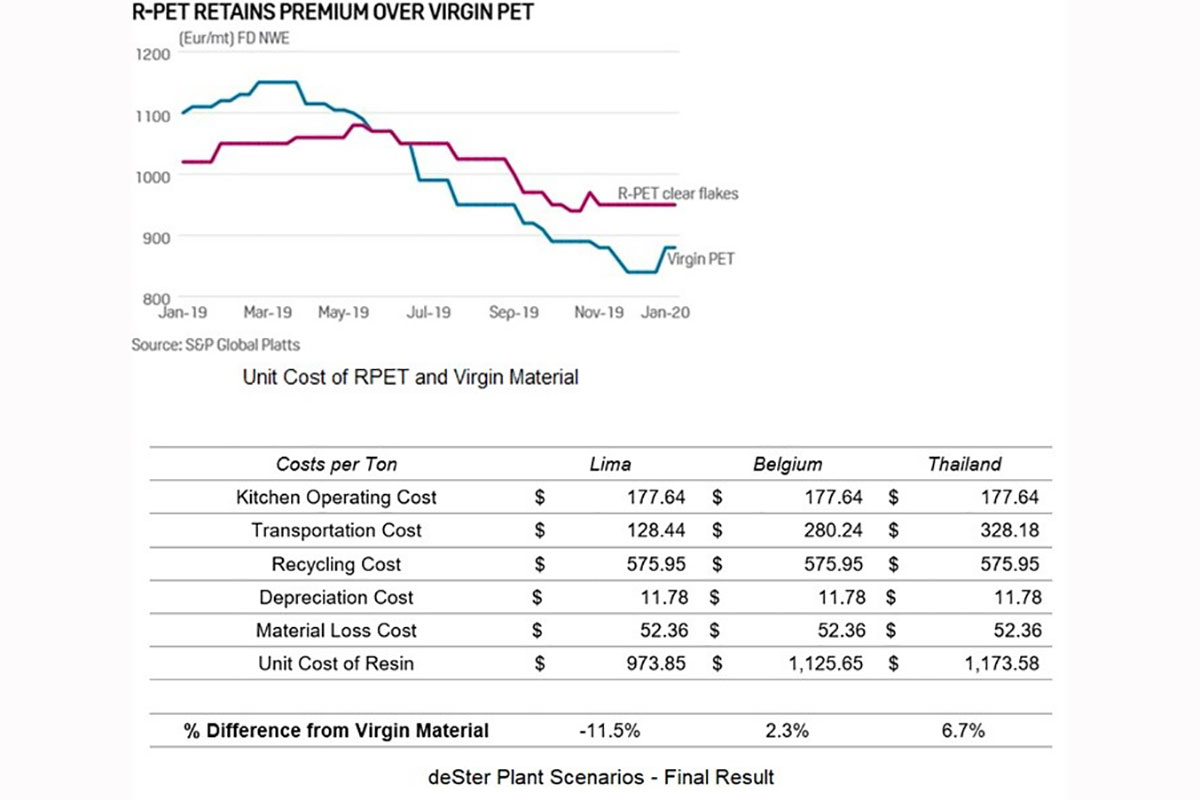Circular solutions for Airport Waste Management: A Sustainable Approach to Handling Post-Consumer Plastics
Project Details
- Student(s): Romy Nehme, Jad Riachi, Nehmat Touma, Karen Audi
- Advisor(s): Dr. Pierrette Zouein and Mr. Johnny Kattar from deSter of Gategroup
- Department: Industrial & Mechanical
- Academic Year(s): 2019-2020
Abstract
As the world population grows towards 9 billion by 2050, the imperative to transition from a linear economic model to one that maximizes resource utilization becomes increasingly pressing. Air travel, a vital aspect of modern life, is also a significant contributor to waste generation, particularly plastic waste. In 2018 alone, airline passengers produced a staggering 6.1 million tons of waste, with 17.3% of cabin waste being recyclable materials, including plastic (IATA 2018). Without proactive measures towards a circular economy, this figure is poised to double within a decade. This project addresses the growing issue of post-consumer plastics within airport environments, starting with a pilot study at Atlanta airport in the US. Collaborating with deSter of Gategroup, this initiative is part of a broader endeavor to establish a closed-loop system for managing waste generated by flights catered by the company. Specifically, this project targets PET waste originating from PET bottles and cups utilized on Delta Airlines’ domestic flights, with a keen eye on its potential financial benefits for the company. Traditionally, post-flight waste, comprising various plastic types, is haphazardly sorted and dispatched to waste streams. Our aim was to design efficient solutions for handling, processing, and compacting PET waste before shipment to the company’s recycling facilities across the US, Europe, or Southeast Asia. Many constraints were considered, including spatial limitations within airport catering facilities, equipment capacity restrictions, contamination risks, operational efficiency, and, notably, budget constraints. The project was divided in two phases. Initially, internal handling issues are addressed, encompassing waste estimation, size reduction strategies, and the proposal of storage and material handling solutions. Subsequently, logistics and transportation hurdles are tackled, optimizing equipment selection, layout design, and developing a mathematical model to generate an optimal compaction schedule. Our research revealed promising outcomes. Notably, the unit cost of plastic resin obtained from recycling PET waste proves to be 11.5% cheaper than that of virgin resin, underscoring the viability and long-term benefits of investing in a closed-loop system. This research project signifies a pivotal step towards sustainable waste management practices within airport environments. By innovatively addressing post-consumer plastics, we not only mitigate environmental harm but also unlock significant economic advantages for aviation industry stakeholders.

